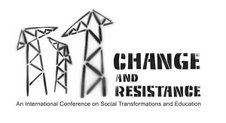Rasa Baločkaitė
PhD Sociology
Kaunas University of Technology
Session: The missing language? Marxism and Social Critique after the Fall of Berlin Wall
The capitalist system, since its very beginning in Western Europe, had its proponents and adversaries as well. The fundamental critique of capitalist system was developed by Marx. Marx coined terms of alienation, commodification, false consciousness and false needs that provide an illusionary substitutes from real freedom, emancipated consciousness, subjectivity and self actualization. Later on, the Frankfurt school and critical theory (“Dialectic of Enlightenment” by Adorno & Horkheimer, “One dimensional man”, “Eros and Civilization” by H.Marcuse etc.) debated the totalitarian nature of free market and culture industries that produce “one dimensional” man, deprive individuals of their subjectivity, train and socialize them as consumers, manipulating their sexuality, so that individuals only serve the needs of the market. Critique of the late capitalism was continued by many others, like Baudrillard, who blames the vices of contemporary western society and consumerism.
While in Western countries, the critique of capitalism has century long traditions, the Eastern block was rather unaware of discontents and inadequacies of late capitalism. After collapse of the Soviet regime in 1990, in Eastern Europe, “West” was found as a new source of legitimacy - capitalism was perceived as only alternative, while former critique of the capitalist system was associated with the Soviet propaganda.
Eastern European societies have been captured by dilemma: on the one hand, fostering transition from authoritarian political regime and planned economy towards liberal democracies and free markets, on the other hand – maintaining critical attitudes. How, then, critique of capitalism is possible in Eastern Europe and where it comes from?
Surprisingly or not, the cultural critique of capitalist system first came from the intellectuals of elder generation. Here, R. Grigas, A. Mikelinskas, O.Baliukonyte, V. Kubilius. M.Martinaitis, A.Juozaitis, J.Aputis are to mention, among many others. Although there was no formal school or trend of social thought, they represented certain conservative perspective towards development of late capitalism. The analysis of their critique of capitalism unveils striking similarities with the Frankfurt school: blaming consumerism, commodification, lack of substantive choice options, stupidifying mass culture and culture industries that deprive individuals of their subjectivity by fostering and then, satisfying false needs and enslaving individuals into never ending circle of consumption.
The critique of late capitalism and consumerism in post Soviet Lithuania, in contrast to critical theory in Western world, was met with contempt and deprecation, and the critics themselves accused of intolerance, arrogance, anti liberal attitudes, sentiments towards totalitarian past, or even compared to Ku Klux Klan (KKK). The texts, containing critique of late capitalism and consumerism, were published in Lithuanian cultural media during 1995-1998. Although they have never been gathered into substantive edition, they represent rather a consistent trend of social cultural criticism and illuminate the development of the social thought in Lithuania.
Subscribe to:
Post Comments (Atom)

No comments:
Post a Comment